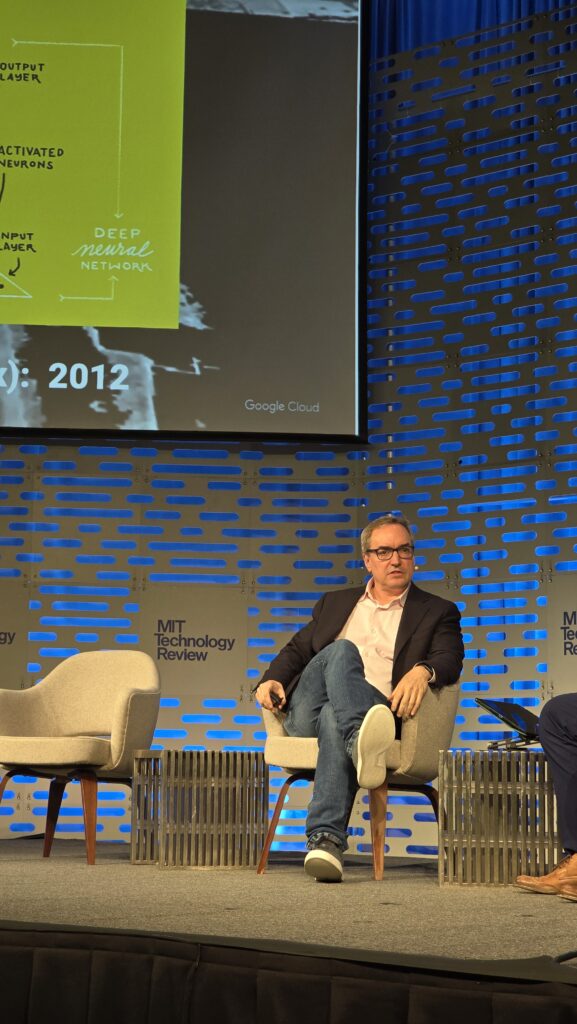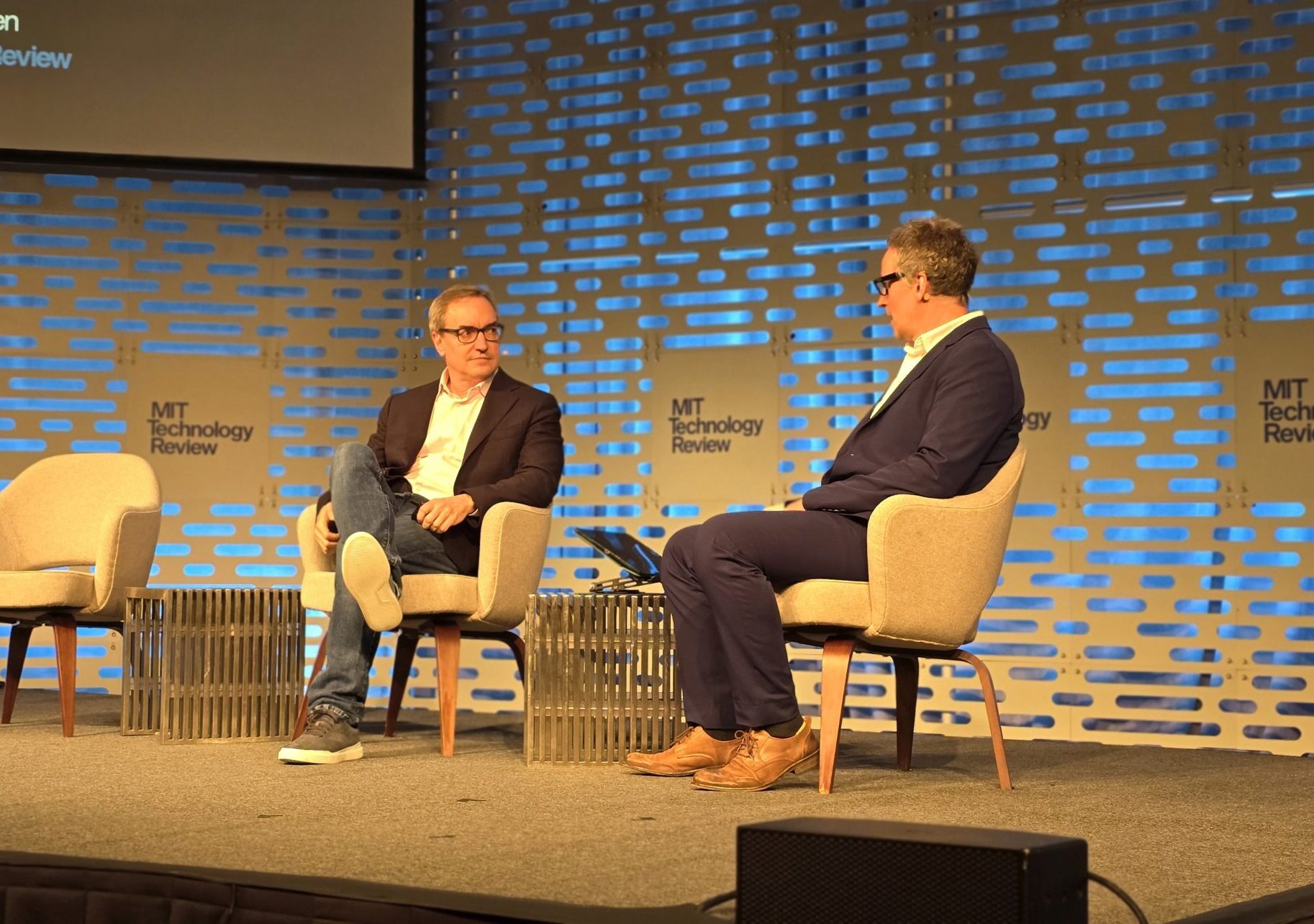Cambridge, MA – MIT EmTechAI: Scott Penberthy, Senior Director of Applied AI in the Office of the CTO at Google Cloud, is no stranger to big ideas. In his talk, “New Frontiers in AI Models,” Penberthy offered a sweeping view of how the latest advances in artificial intelligence are reshaping industries, accelerating scientific discovery, and even redefining what it means to live a healthy life.
Penberthy’s journey with AI began with a sense of wonder and a chance encounter with a pioneering AI professor. This early fascination led him to a career at the intersection of technology and real-world impact, where he now leads efforts to apply AI to some of humanity’s toughest challenges, particularly in healthcare and life sciences.
At the core of Penberthy’s approach is the idea of modeling the world as “tensors”-high-dimensional data structures that can represent everything from business processes to the code of life itself. He describes healthy lives as paths through these multidimensional shapes, with AI acting as a guide: detecting when we drift off course and suggesting simple actions to keep us on track. This tensor-centric perspective has fueled Google Cloud’s innovations in semantic search, embeddings, and enterprise AI products, especially in fields like bioinformatics and precision medicine.

Penberthy’s work is particularly focused on using AI to transform healthcare. He envisions a future where AI-powered models can analyze genomic data, track health transitions, and detect diseases like cancer years before symptoms appear. Thanks to advances in AI, genomics, and cloud computing, the cost of sequencing and analyzing a patient’s DNA is plummeting-from millions of dollars to potentially just $50-making early detection and personalized health guidance accessible to all. In Penberthy’s words, “AI is the ultimate pattern recognizer,” capable of uncovering hidden relationships in vast datasets that would be impossible for humans to spot unaided.
But the implications of these new AI models go far beyond healthcare. Penberthy highlights how breakthroughs in neural networks, attention mechanisms, and diffusion models are driving innovation across sectors-from drug discovery and market analysis to optimizing supply chains and even searching for minerals on the moon. These models are not just learning from static data; the next wave will be able to learn from experience, adapt in real time, and generate new knowledge on the fly.
Penberthy is candid about the challenges ahead. The pace of change is dizzying, and society will need to adapt quickly to keep up. He stresses the importance of embracing these technologies thoughtfully, ensuring they are used to augment human capabilities and solve real problems. The future, he suggests, belongs to those who can combine the power of AI with domain expertise, curiosity, and a willingness to revisit first principles when the old ways no longer suffice.
In summary, Scott Penberthy’s vision for AI’s new frontiers is both ambitious and grounded. He sees a world where AI models are not just tools, but partners in discovery-helping us live longer, healthier lives, make better decisions, and unlock mysteries that have eluded us for generations. As these models continue to evolve, the possibilities are limited only by our imagination and our resolve to use them wisely.
For more information, please visit the following:
Website: https://www.josephraczynski.com/
Blog: https://JTConsultingMedia.com/
Podcast: https://techsnippetstoday.buzzsprout.com
LinkedIn: https://www.linkedin.com/in/joerazz/


Leave a Reply
You must be logged in to post a comment.